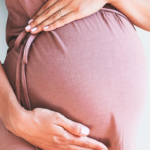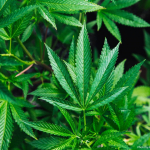Despite decreasing rates of alcohol and tobacco use during pregnancy, the use of cannabis use during pregnancy is on the rise. Several qualitative studies have suggested that pregnant women report using cannabis to manage a range of psychological symptoms, including anxiety and depression. However, we do not know whether cannabis use is more common among pregnant women with psychiatric illness or histories of trauma. In a recent study, data from the Kaiser Permanente Northern California (KPNC) health care system was used to examine the association between cannabis use during pregnancy and diagnosis of depression, anxiety, and trauma.
Between the years of 2012 and 2017, pregnant women who delivered a liveborn baby within the KPNC system completed questionnaires on prenatal substance use and submitted a urine toxicology test at their first prenatal visit (at approximately 8 weeks’ of gestation) as part of their routine prenatal care. Of the 219,071 pregnancies included in the analysis, about 10% of the women were exclude: 1042 (0.5%) without date of the last menstrual period, 21, 115 (9.6%) without a urine toxicology test, and 892 (0.4%) with no answer to the question about cannabis use.
Diagnoses of depression, anxiety disorders and trauma during pregnancy were identified using ICD-10 codes documented in the electronic health record. Self-reported depression symptoms were assessed using the Patient Health Questionnaire–9. Intimate partner violence was assessed at the first prenatal visit.
Of the 196,022 pregnancies included, 11,681 pregnancies (6.0%) screened positive for prenatal cannabis. Women who used cannabis, compared with those who did not use cannabis:
- Were younger (age <25 years, 42.0% vs. 13.3%),
- Had lower annual household incomes (income <$51,893, 40.3% vs. 24.0%),
- Were more likely to be African American (19.7% vs. 4.4%) or Hispanic (31.3% vs. 27.7%), and
- Were less likely to be Asian (2.9% vs. 18.4%).
Women who used cannabis were also more likely than those who did not use cannabis to have :
- An anxiety disorder (8.3% vs. 4.7%),
- A depressive disorder (10.6% vs. 4.3%),
- Depressive symptoms (mild, 32.2% vs. 24.5%; moderate, 13.3% vs. 7.0%; and moderately severe to severe, 8.3% vs. 3.3%),
- A trauma diagnosis (8.3% vs. 2.0%),
- Self-reported intimate partner violence (4.4% vs. 1.8%).
Prenatal cannabis use was more likely to be identified in women with any type of psychiatric illness or trauma (compared to women without documented psychiatric illness or trauma): anxiety disorders (aOR 1.90; 95% CI, 1.76-2.04), depressive disorders (aOR 2.25; 95% CI, 2.11-2.41), or both (aOR 2.65; 95% CI, 2.46-2.86), trauma diagnosis (aOR 2.82; 95% CI, 2.59-3.06), or self-reported intimate partner violence (aOR 1.94; 95% CI, 1.74-2.15). The likelihood of cannabis use increased with depression severity: mild (aOR 1.60; 95% CI, 1.53-1.67), moderate (aOR 2.09; 95% CI, 1.96-2.23), and moderately severe to severe (aOR 2.55; 95% CI, 2.35-2.77).
One of the most obvious limitations of this study is that about 10% of the participants did not provide data regarding cannabis use during pregnancy. The study was conducted between 2012 and 2017; recreational use of marijuana was legalized in California in 2016. It is reasonable to assume that the prevalence of cannabis use may have been underestimated in this study, given that women using cannabis or other substances may have elected not to provide information using cannabis use for fear of negative appraisals or legal consequences. It is also possible that the prevalence may be lower given that some women may have used cannabis before they knew they were pregnant. That said, this type of study may be the best we can do given that we cannot test for substance use without informed consent.
Although there are significant limitations to this study, the findings are striking. In a cross-sectional study, we can infer definitively conclude that psychiatric illness causes increased use of cannabis during pregnancy. It is possible that women who use cannabis are more vulnerable to psychiatric illness and trauma. However, what we see is the coexistence of multiple factors which are associated with worse outcomes during pregnancy, including psychiatric illness, trauma including IPV, cannabis use, lower socioeconomic status.
Ruta Nonacs, MD PhD
Young-Wolff KC, Sarovar V, Tucker LY, et al. Association of depression, anxiety, and trauma with cannabis use during pregnancy. JAMA Netw Open. 2020;3(2):e1921333.








Leave A Comment